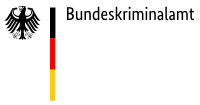The responsibilities and powers of the Bundeskriminalamt (BKA), like those of all government agencies, are regulated by law. The BKA is a subordinate agency to the Federal Ministry of the Interior.
The BKA works on the basis of a clear legal mandate, which is defined in the German Constitution and in the "BKA Law" (Law on the Bundeskriminalamt and the Cooperation between Federal and State Authorities in Criminal Police Matters).
The Bundeskriminalamt is an essential cornerstone in a comprehensive system of crime control and works as a partner with the police forces of the Federation and of the individual German states. According to the German Constitution, for the most part police jurisdiction in Germany lies with the 16 German states. However, the diversity resulting from the principle of federalism should not lead to uncoordinated activity that creates obstacles for police work.
To co-ordinate crime suppression at national and international level, the BKA was established as the central office for police information and communications as well as for the German CID.
By acting as information and communications centre of the German police, the BKA provides support to the police forces of the federation and of the states in connection with the prevention and prosecution of crimes that involve more than one German state and that are of international significance or otherwise of considerable significance.
One for all: The BKA also helps the police forces in the German states to avoid duplication of effort. A number of centralised systems and facilities for the German police are maintained at the Bundeskriminalamt. This is where the most important police messages come together, and this is also where information about criminal offences and criminals is stored in a central location. New crime suppression methods are investigated and developed here to ensure that the police are always state-of-the-art in terms of science and technology.
The Bundeskriminalamt has also been assigned the task of promoting police co-operation in Europe and throughout the world as a legal mandate. After all, national borders should not be an obstacle in the fight against crime.
All official communications between the German police and other countries are routed through the Bundeskriminalamt. This makes it possible to compile important information and ensure uniform application of legal provisions. The BKA acts as the national central office for Interpol, Europol and the Schengen Information System.
The BKA investigates outstanding cases of international crime as defined by law either on its own initiative, or whenever a public prosecutor's office puts it in charge of such investigations due to the significance of the criminal offence in question.
The BKA is also responsible for protecting the members of the constitutional organs of the Federation.

